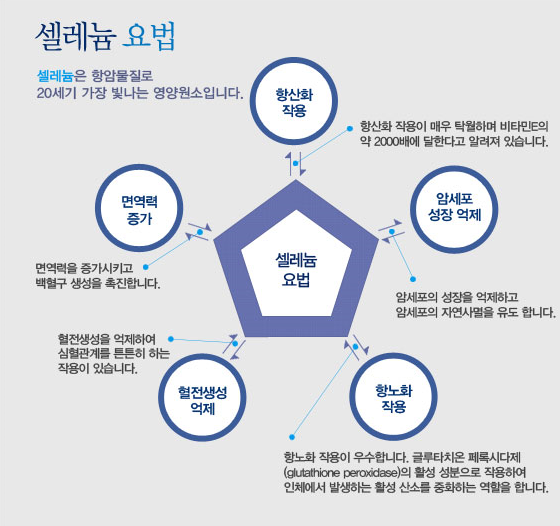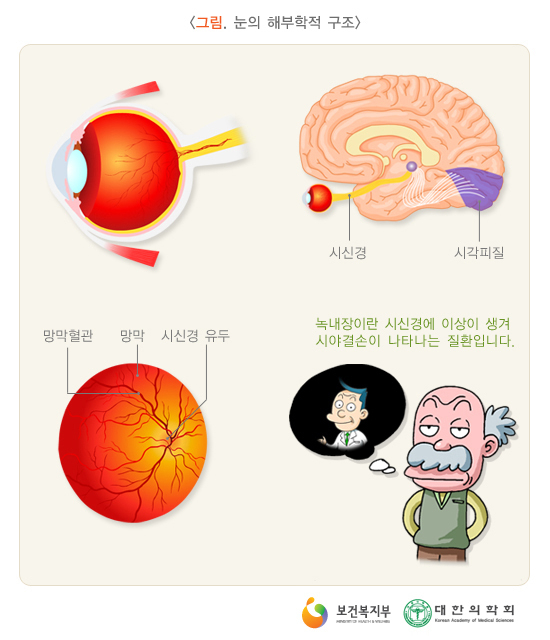Lack of thyroid hormones that control the body’s metabolic rate and play an important role in growth and development can lead to various symptoms such as fatigue, weight gain, and memory loss

Since the recommended daily intake is a number to maintain general health and prevent deficiency, it is recommended to decide through consultation because the amount to be consumed may vary depending on special circumstances such as illness or pregnancy. Increasing synergy effect when lumped together is a good mineralThe recommended daily intake of selenium varies by age, gender, health condition, etc., and may vary by country or institution. The World Health Organization WHO recommends the recommended daily intake of selenium for adults 55㎍g to 200㎍g. The recommended daily intake of selenium for adults Children under 1 year old: 15µg1-3 years old: 20µg4-8 years old: 30µg9-13 years old: 40µg adolescents and adults 14-18 years old: 55µg (~200µg) 19 years old or older: 55µg (~200µg)Selenium is effective for health by itself, but there are minerals that can create greater synergy when combinedTogether with glutathione, it is an important antioxidant that removes free oxygen that damages cells. Through this action, it can reduce risk factors for various diseases such as cancer, cardiovascular disease, stroke, Alzheimer’s, and thyroid hormone production and maintenanceAntioxidant_Free OxygenSelenium is an essential element in promoting the synthesis and activation of glutathione, a powerful antioxidantThe World Health Organization (WHO) categorizes selenium as a mineral nutrient essential to the human body. Selenium is an essential nutrient that can catch two rabbits, antioxidant and immune enhancement, but it is an essential nutrient that can be combined with various minerals to create greater synergy. Antioxidant and immune enhancement essential seleniumThe soil in Korea is composed of granite and basalt, which are low in selenium, making it difficult to grow selenium-rich foods. In addition, as eating habits become more westernized, Koreans tend to eat selenium-poor foods such as instant and fast foods rather than selenium-rich foods such as eggs and legumes, so the amount of selenium-rich food can be consumed is limited. Selenium-rich ingredients such as nuts, nuts, walnuts, amod, and peanuts, seafood salmon such as mackerel, oysters, shrimp, tuna, brown rice with grains such as pork, whole wheat, and oats, vegetable broccoli such as green onions and garlicSelenium helps strengthen immunity by promoting the activation of immune cells through antioxidant effects. The antibacterial effect of selenium improves resistance to infection, which can improve the defense function of the immune system. In addition, selenium can help in the production of immunomodulatory proteins such as glutathione and interleukin, which are important proteins that strengthen the immune system. Helps adolescents grow and developIf you have thyroid disease or have thyroid disease patients around you, you’ve heard of selenium a lot. And if you look at the glutathione nutrient you’re looking for a lot, you’ve probably noticed the nutrient called seleniumSelenium is an enzyme component that plays an important role in the production of thyroid hormones and promotes the production of thyroid hormones. Selenium can help maintain thyroid function, alleviate symptoms of the disease, and reduce the risk of thyroid cancer through the production and activation of thyroid hormones. Strengthen immunityIt protects the cells needed for growth and can be effective for normal cell division and development. It can also reduce exposure to diseases through strengthening immunity, and normal secretion of thyroid hormones that regulate the body’s metabolism and interact with the growth of bones and the secretion of growth hormones can contribute to the growth and development of adolescents. WHO’s recommended daily dose of seleniumThe antioxidant action of selenium, strengthening antibacterial immunity, and thyroid hormone production areSelenium is a trace element that is important for antioxidant action and strengthening immunity, and plays an important role in maintaining physical health that strengthens the function of activated oxygen-removing immune cells that damage cells. Role of rhenium: Thyroid hormone production and maintenance; Antioxidant function; Strengthening immunity; Reducing inflammation; Reducing reproductive function; Helping with growth and developmentIf you can’t take it from food, it’s an essential mineral that you should take without deficiency by using supplements. If you take it with selenium as well as glutathione, zinc, and vitamin D, which can create synergy with it, it can help with thyroid disease, cancer, cardiovascular disease, and the growth and development of adolescents. However, excessive intake of selenium can cause various side effects such as vomiting, diarrhea, abdominal pain, rash, hair loss depression, and nervousness, so it is recommended to consult an expert and decide the dosage after consultation if there are any special circumstances such as intake, disease, or pregnancy

